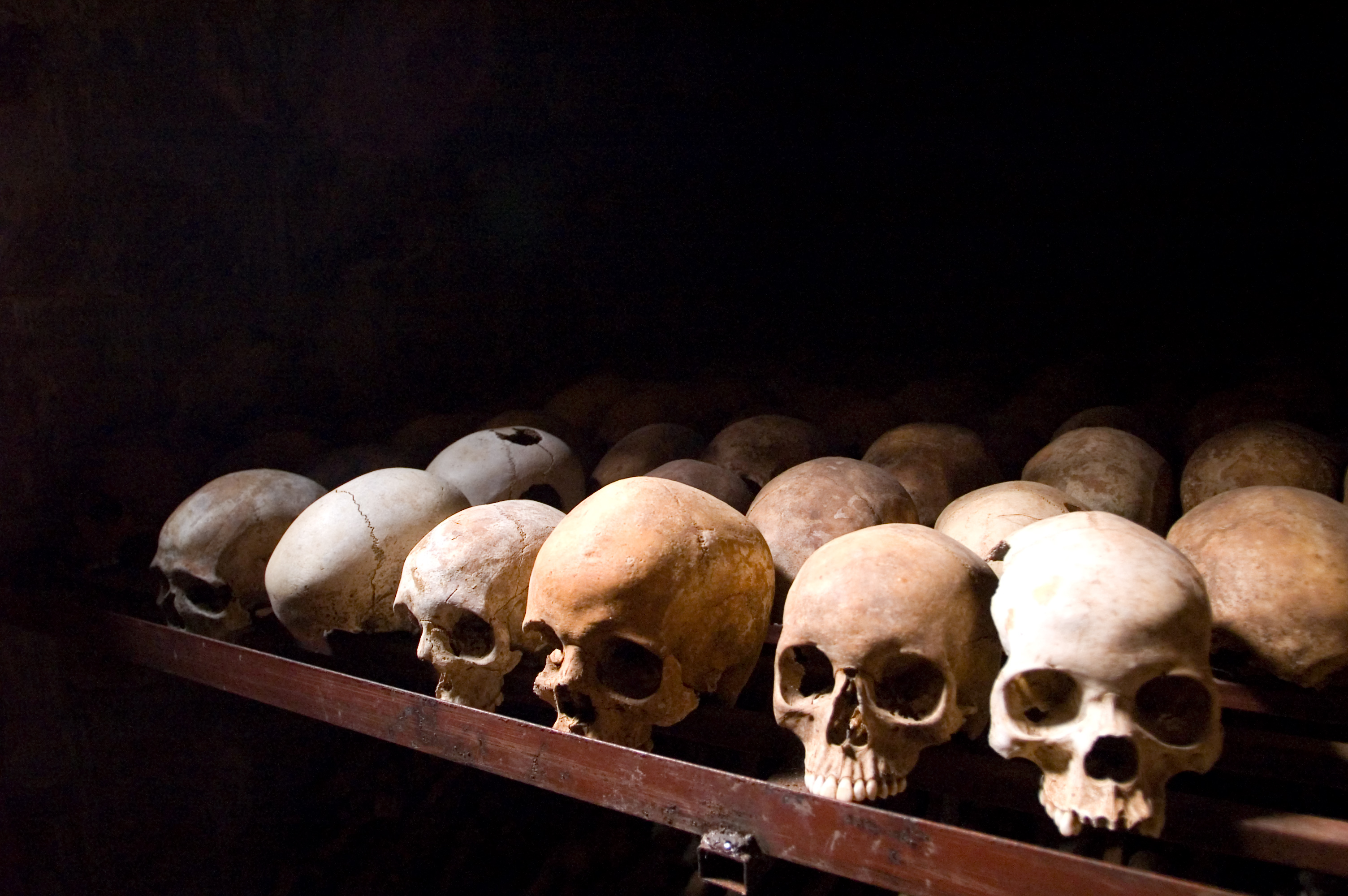The Rwandan Genocide orphaned them. 25 Years Later, They’re Interviewing the Perpetrators
When Gadi Habumugisha was two years old, he was forced to flee Rwanda with his older sister. Crossing the border to seek safety in refugee camps in the neighboring Congo, the pair were eventually orphaned by the killings. April 7 marks 25 years since the Rwandan genocide. It was April 1994, and violence was escalating after the president’s death as ethnic tensions erupted. Over 100 days, an estimated 800,000 people were killed — most of the members of the minority Tutsi ethnic group died by the majority Hutu population.
Gadi and his sister’s new lives in Rwanda began at the end of 1994 after the genocide ended when they returned with the Red Cross to their homeland and came to the Imbabazi Orphanage in the country’s north. Run by Rosamond Carr, an American humanitarian who had lived in Rwanda since 1949, the orphanage was a sanctuary for children who had lost their families due to that traumatic summer. For Gadi, and two other boys, Mussa Uwitonze and Bizimana Jean, the orphanage also became the place where, years later, they first picked up cameras at a photography workshop run by Through the Eyes of Children, an organization founded in 2000 by photographer American David Jiranek. All three boys seized the chance to tell their own stories by taking pictures. It marked the beginning of a lifelong passion for photography.

Now all in their late twenties, the three men are spreading that passion to other vulnerable children, taking on the leadership of Through the Eyes of Children by teaching photography workshops in Rwanda and around the world. Working initially with 19 “camera kids,” the photography workshops for vulnerable children in Rwanda started in 2000, teaching them the basics of lighting, composition, and stop-motion, among other photography techniques. The photographs made by workshop participants have been exhibited at the U.S. Embassy in Rwanda’s capital Kigali, the United Nations headquarters in New York, and Holocaust museums worldwide. “When you give a child a chance to tell their story from their perspective, it tells them they matter and that their story matters,” says Joanne McKinney, project director at Through the Eyes of Children.
Documenting scenes of everyday life in the country, the huge collection of photographs track the healing and rebuilding of Rwanda in the years after the genocide. “For us orphans, we were able to express ourselves, and the world could see our photos, our country and the children of it,” says Mussa Uwitonze, now 28 years old and the father of two girls. The photographs from the workshops did more than show life in Rwanda to international audiences. Proceeds from sales of the images to buyers worldwide fed back into Imbabazi, paying for the children’s clothing, food, and education. Many of the original Camera Kids have pursued careers in photography for media, events, and non-profit organizations in Rwanda.
Almost 20 years from their first workshop and 25 years from the genocide, Gadi, Mussa, and Bizimana embark on their journey, telling their story through different means. They are both the subjects and storytellers of a forthcoming documentary, entitled Camera Kids, in partnership with American filmmaker Beth Murphy, Director of Films for the Groundtruth Project, an international non-profit media organization supporting storytelling and freedom of expression United States and developing countries around the world.
The three men have worked as professional photographers and now lead the Through the Eyes of Children photography workshops. But a few years ago, they realized they were still troubled by lingering questions about their past. “We all had so many questions since our time at the orphanage,” says Mussa. “Who are these people who participated in the genocide? What were they thinking when they were killing people? We decided that it was our time, as photographers and storytellers, to find out the answers from the real people who participated in the genocide.”




